It’s Time To Consider Homecare For Your Family Member

When Daily Tasks Become Overwhelming
Common Daily Struggles That Signal The Need For Help
How Professional Caregivers Assist With Daily Activities
Professional caregivers provide respectful personal care assistance, helping with bathing, grooming, and dressing whilst maintaining your loved one’s dignity and independence. They manage meal planning and preparation, accommodating dietary requirements and preferences to ensure proper nutrition. Light housekeeping maintains a safe, comfortable living environment. Medication reminders guarantee prescriptions are taken correctly and on schedule. Discover our comprehensive homecare services designed to support daily independence.
Noticeable Changes In Health Or Mobility
Physical Changes That Require Professional Attention
Why Declining Health Shouldn't Be Managed Alone
Medical Support & Health Monitoring At Home
Skilled nursing care delivers professional medical support including wound care, injection administration, and post-operative recovery assistance. Physical therapy helps rebuild strength, improve mobility, and prevent further decline. Regular health monitoring tracks vital signs, manages symptoms, and identifies concerning changes early. Professional caregivers coordinate seamlessly with GPs, specialists, and allied health providers, ensuring comprehensive care continuity. Learn about our skilled nursing services available throughout Melbourne.
Increased Feelings Of Isolation Or Loneliness
Senior loneliness has reached epidemic proportions across Australia, with research indicating that social isolation significantly impacts both mental and physical health outcomes. The connection between loneliness and adverse health consequences—including increased mortality risk, cognitive decline, depression, and cardiovascular problems—is well-established yet often overlooked until serious complications develop.
Recognising When Your Loved One Is Withdrawing
Watch for declining interest in previously enjoyed hobbies, whether gardening, crafts, or reading becomes abandoned. Social interactions with friends and family diminish noticeably, with phone calls going unreturned and invitations declined. Depression symptoms emerge, including persistent sadness, energy loss, appetite changes, or altered sleep patterns. Reluctance to leave home increases, with even familiar outings feeling overwhelming. Excessive television watching or general disengagement from surroundings becomes the norm. Cognitive decline often accelerates when mental stimulation disappears.
How Loneliness Impacts Senior Health
Studies demonstrate that chronic loneliness increases mortality risk comparably to smoking 15 cigarettes daily. Social isolation strongly correlates with depression, anxiety disorders, and diminished immune function. The cognitive impact proves equally concerning, with isolated seniors experiencing accelerated cognitive decline and increased dementia risk compared to socially engaged peers.
Companionship & Social Engagement Through Homecare
Companion care services provide meaningful social interaction, engaging conversation, and genuine friendship that combats isolation. Caregivers encourage participation in enjoyable activities, from card games to gardening, stimulating mental engagement. Transportation assistance enables attendance at social events, medical appointments, and community activities that maintain connections beyond the home. Professional companions connect seniors with community resources, clubs, and programs designed for their interests. Discover our companion care services that transform daily life.
Caregiver Burnout Is Becoming Real
Family caregivers demonstrate extraordinary dedication, often sacrificing their own wellbeing to support ageing parents or relatives. This devotion deserves recognition and respect. However, the reality remains that caregiving demands frequently become unsustainable, affecting caregiver health, relationships, employment, and quality of life. Acknowledging caregiver stress isn’t failure—it’s recognising that sustainable, quality care requires shared responsibility.
Are You Experiencing These Caregiver Warning Signs?
Physical exhaustion and chronic fatigue become your constant companions, with adequate rest impossible despite feeling perpetually tired. Emotional overwhelm manifests as anxiety, irritability, depression, or feeling trapped by circumstances. Social withdrawal occurs as you increasingly cancel plans with friends, abandon hobbies, and isolate from your own support network. Personal health appointments get postponed indefinitely whilst self-care becomes a luxury you cannot afford. Resentment toward caregiving responsibilities creeps in, followed by guilt about those feelings. Sleep problems worsen, whether from monitoring overnight or stress-induced insomnia.
The Hidden Costs Of Caregiver Burnout
Research indicates that caregivers experience significantly higher rates of depression, anxiety, and chronic health conditions compared to non-caregivers. Burnt-out caregivers inevitably provide diminished care quality, despite their best intentions, as exhaustion compromises patience, attentiveness, and decision-making capacity. The financial impact extends beyond lost income, with caregivers often depleting savings whilst neglecting their own health needs. Sustainable care solutions aren’t optional—they’re essential for both caregiver and care recipient wellbeing. Professional support prevents family caregiving from becoming a crisis requiring intervention itself.
Respite Care & Support For Family Caregivers
Respite care provides flexible relief options, from several hours weekly to overnight or extended periods, allowing caregivers essential breaks for rest, appointments, or personal time. Shared caregiving responsibility with professional teams reduces individual burden whilst ensuring consistent, quality care continues. The peace of mind knowing your loved one receives expert care whilst you recharge reduces stress dramatically. Professional respite support enables caregivers to maintain employment, attend to their own families, and preserve personal wellbeing—ultimately extending their capacity to remain involved in their loved one’s care long-term. Get respite care support today and reclaim balance.
Safety Concerns Around The Home Are Rising
Home safety becomes increasingly critical as age-related changes affect judgment, mobility, and awareness. What once seemed a perfectly safe environment can transform into a hazard-filled space as capabilities decline. Prevention through proactive safety measures and professional supervision proves far more effective—and less traumatic—than responding to emergencies after accidents occur.
Safety Red Flags That Demand Immediate Attention
Fire hazards multiply when stoves are left burning, cigarettes are smoked in bed, or appliances are misused. Fall hazards proliferate through accumulated clutter, inadequate lighting, loose rugs, and unsafe stairs without proper railings. Wandering risks emerge for those experiencing dementia, potentially leading to dangerous situations. Poor personal hygiene signals self-neglect requiring intervention. Spoiled food accumulating in the refrigerator indicates confusion or declining judgment. Unpaid bills or financial mismanagement suggest cognitive difficulties affecting practical matters. Home maintenance neglect becomes visible through broken railings, leaking taps, or general disrepair. Unsafe driving continues despite clearly compromised abilities.
Why Home Safety Can't Wait
Home accidents cause the majority of injury-related hospitalisations among older Australians, with consequences often proving devastating. Emergency interventions following accidents cost substantially more than preventive care measures, both financially and in terms of recovery prospects. For family members living at distance or managing work responsibilities, peace of mind knowing professional eyes monitor safety proves invaluable.
Creating A Safer Home Environment
Twenty-four-hour supervision options ensure constant monitoring for those requiring intensive safety oversight. Fall prevention strategies include mobility assistance, environmental modifications, and supervised ambulation. Comprehensive home safety assessments identify hazards and implement practical solutions before accidents occur. Monitoring for wandering or unsafe behaviours protects vulnerable individuals whilst maintaining dignity. Emergency response capabilities provide immediate assistance when needed. Schedule a free home safety assessment with NurseLink Healthcare today.
How Homecare Can Make Life Easier For Everyone
Recognising the signs that homecare is needed represents only half the equation—understanding how professional support transforms life for everyone involved completes the picture. Homecare isn’t merely about addressing deficits; it’s about enhancing quality of life, preserving independence, and creating sustainable care arrangements that benefit the entire family unit.
What Your Family Member Gains From Homecare
Independence and dignity remain intact as your loved one continues living in their own home, surrounded by familiar belongings and memories. Personalised care plans are tailored precisely to individual needs, preferences, and routines rather than institutional schedules. Consistent routines in familiar environments reduce confusion and anxiety whilst promoting wellbeing. Professional expertise ensures proper health management, medication adherence, and early intervention when concerns arise. Regular social engagement and companionship combat isolation whilst stimulating cognitive function. Overall quality of life improves measurably as basic needs are met consistently and additional enrichment activities become possible.
How Homecare Supports The Entire Family
Reduced stress and guilt transform family dynamics as professional caregivers shoulder daily responsibilities. Balanced lifestyles become achievable again, with time for work, your own family, and personal wellbeing no longer feeling like impossible luxuries. Professional support and guidance help navigate complex medical situations and care decisions with expert input. Shared responsibility means no single family member bears the entire burden alone. Better relationships flourish when family members can focus on companionship rather than toileting assistance, creating positive interactions instead of resentment-building care tasks. Peace of mind knowing your loved one is safe, well-cared-for, and thriving allows you to sleep at night.
Finding The Right Level Of Care
Companion care provides non-medical support including conversation, activities, light housekeeping, and meal preparation for those needing social engagement and practical assistance. Personal care adds ADL support such as bathing, dressing, grooming, and mobility assistance when physical help becomes necessary. Skilled nursing delivers medical care including medication management, wound care, chronic condition monitoring, and post-operative support requiring professional nursing expertise. Respite care offers temporary relief for family caregivers, whether for several hours, days, or weeks. Twenty-four-hour care ensures round-the-clock supervision and support for those requiring constant assistance. Specialised care addresses specific needs including dementia care, Alzheimer’s support, palliative care, and end-of-life hospice services. Explore our complete range of services to find the perfect fit.
What To Expect When Starting Homecare Services
Initial consultation and assessment occur in your loved one’s home, allowing our team to understand needs, preferences, environment, and family dynamics comprehensively. Customised care plan development follows, creating detailed support strategies addressing specific requirements whilst respecting individual wishes. Caregiver matching ensures personality compatibility and appropriate skill levels for the care needed. Ongoing communication maintains family involvement with regular updates, care plan adjustments as needs evolve, and transparent collaboration ensuring everyone remains informed. Schedule your free consultation with NurseLink Healthcare and discover how professional homecare can transform life for your entire family.
Latest Post

Complete guide for aged care quality standards
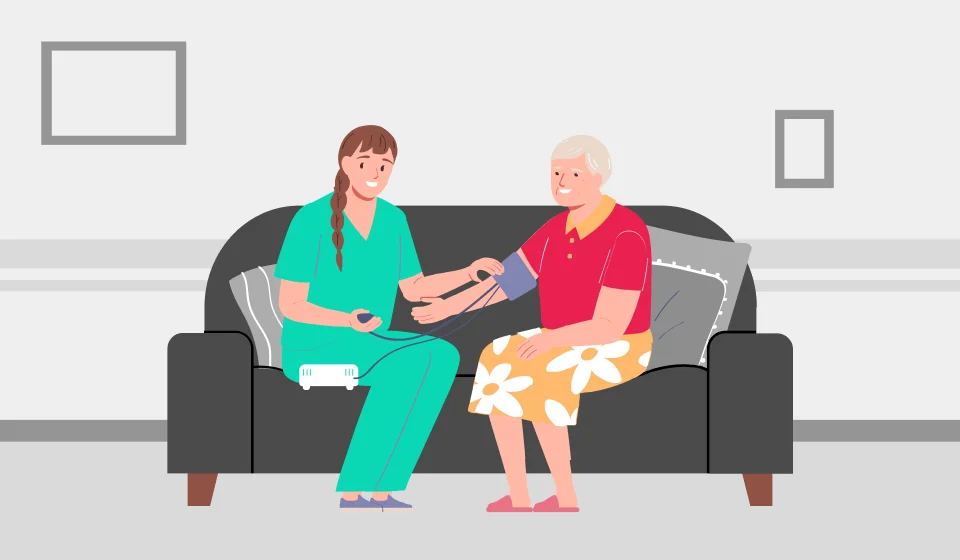
Personal Care Attendant (PCA): What they do & why they matter
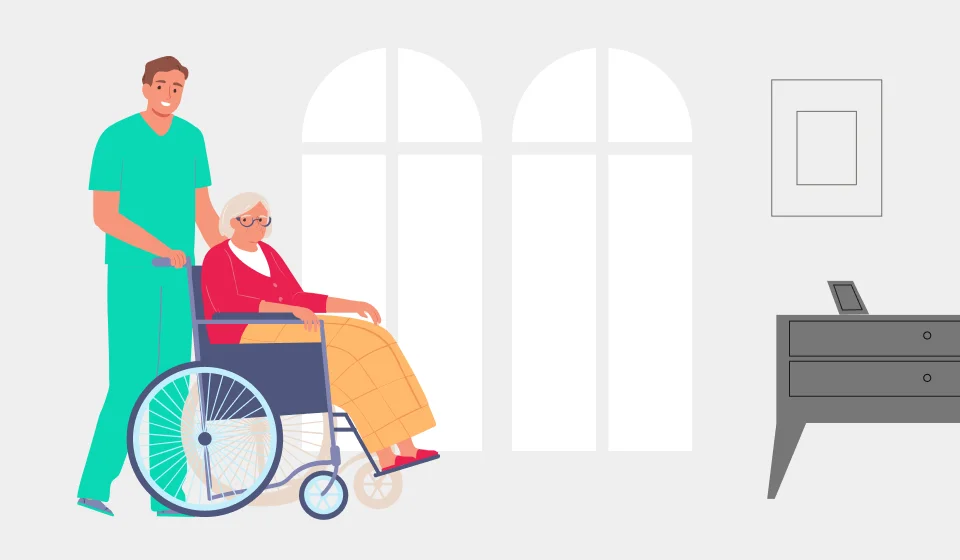
The complete guide to homecare packages
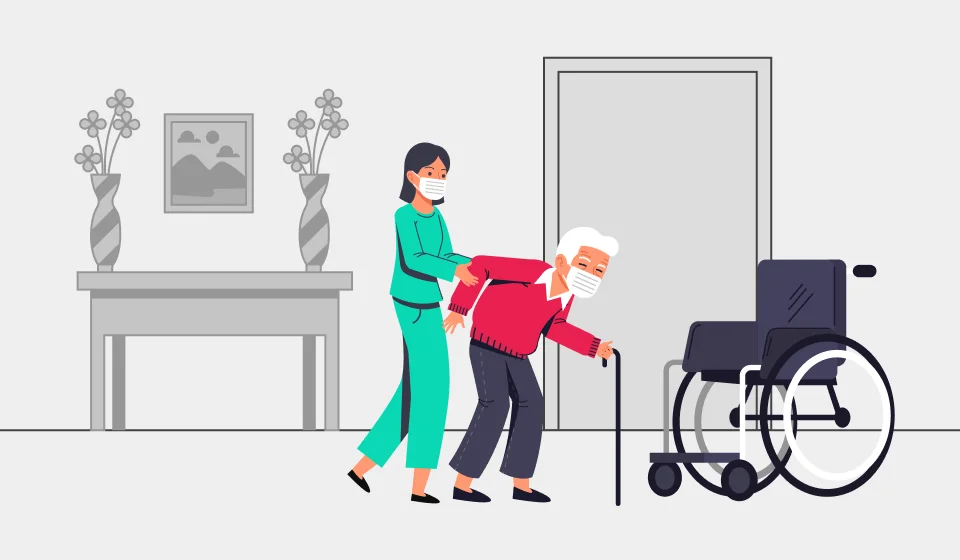
Is Homecare a Good Job? Salary, Demand & Benefits
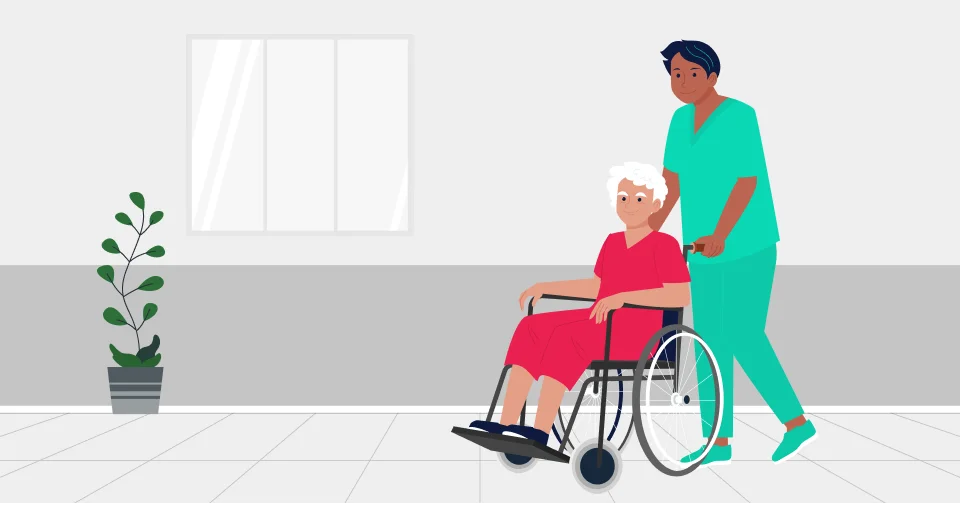
Everything you need to know about homecare packages
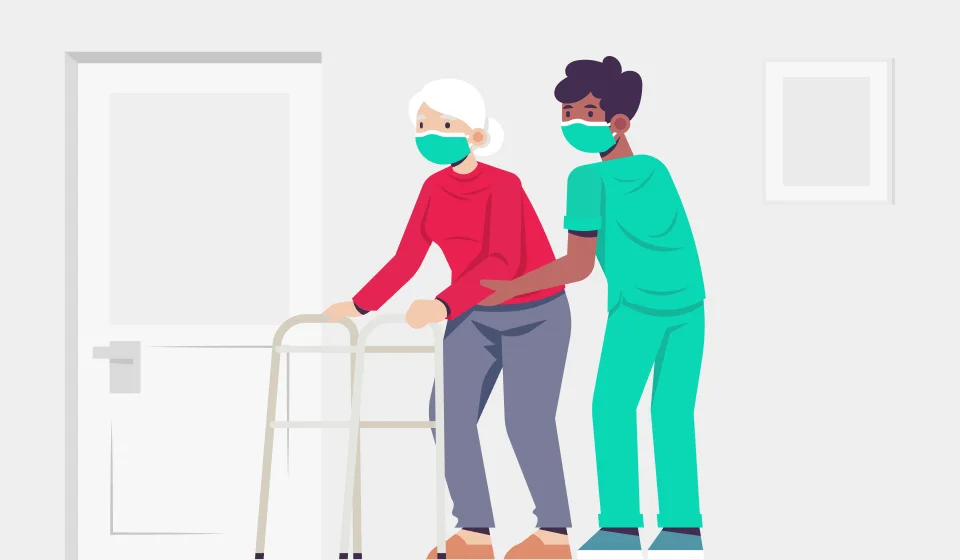
5 Reasons why nurses choose to work in aged care
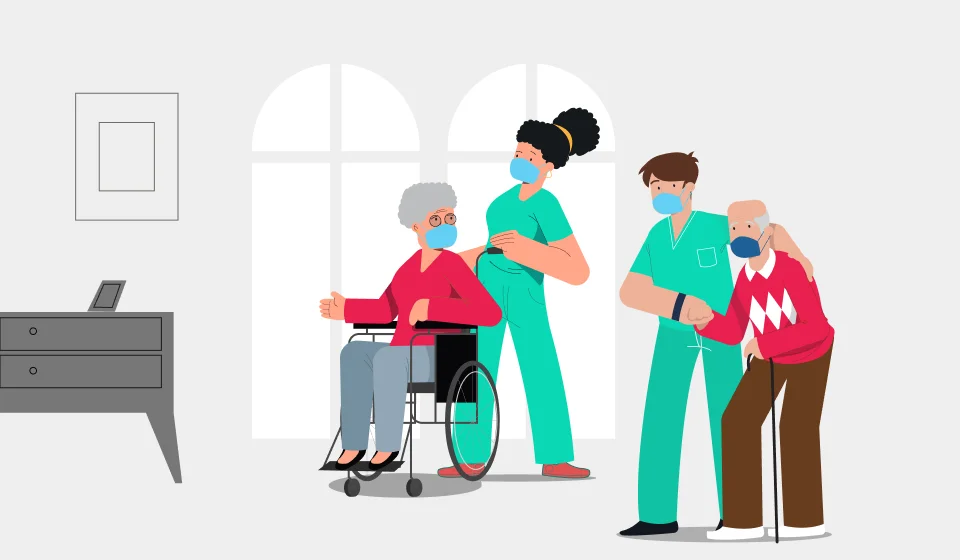
Supporting Seniors Through Life Transitions with Compassionate Homecare

